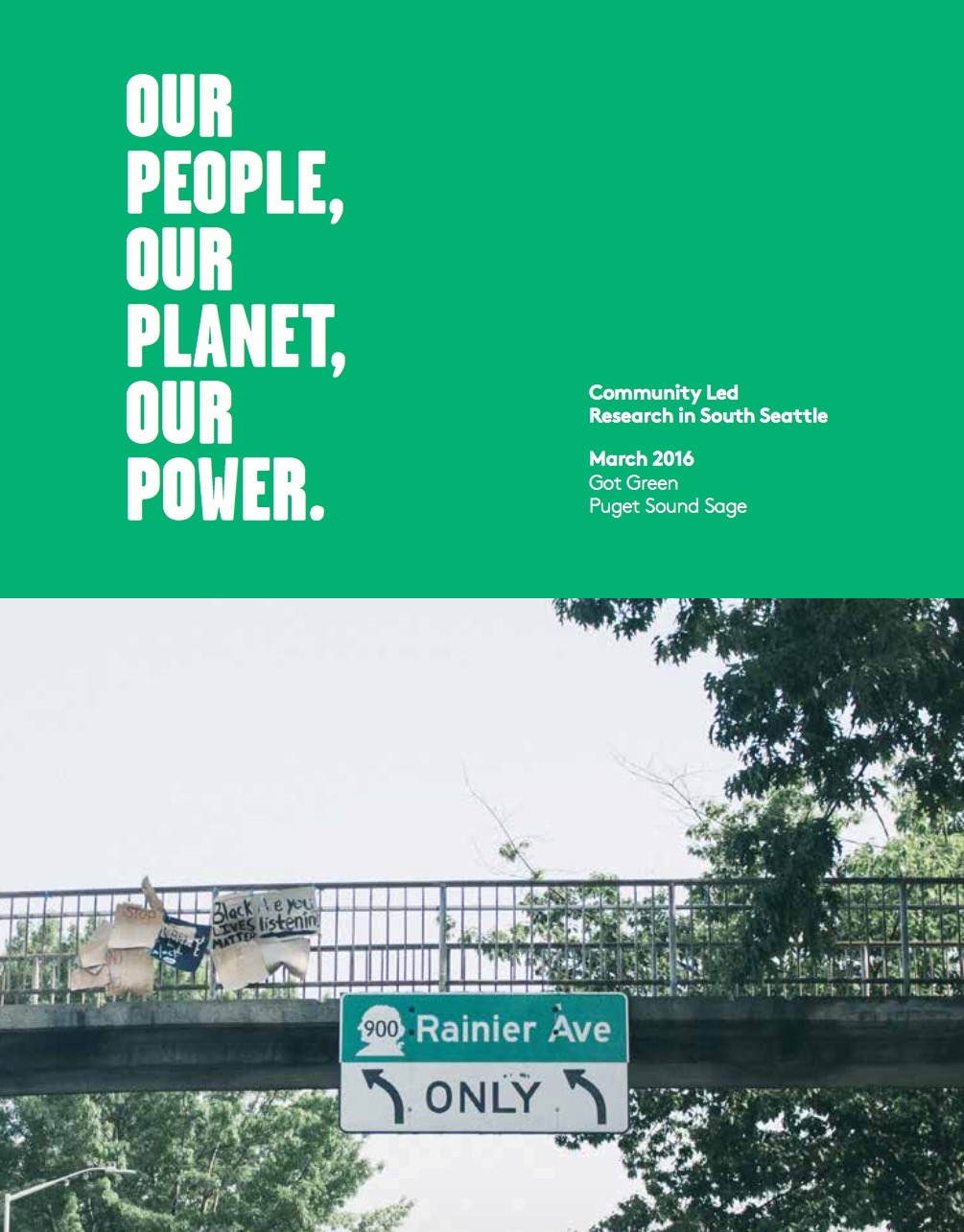Our People, Our Planet, Our Power
Puget Sound Sage and Got Green set out to learn how our communities were experiencing climate change.
March 2016 - Led by the Climate Justice committee, we interviewed 175 people and 30 organizations in South Seattle and South King County to determine how low income communities are impacted by climate change. Our goal was to determine our collective priorities, lifting up the all too often overlooked message that poor people and people of color are often hit first and worst by the impacts of climate change.
Our People, Our Planet, Our Power — Community Led Research in South Seattle has shaped our conversations with community, the public sector, and organizational partners as well as the development of the policy recommendations put forth in this report.
This Climate Justice Project has set the foundation for our organizations to develop grassroots campaigns that grow an intersectional climate justice movement which keeps our communities rooted in place and ushers in a new economy for people and the planet.
Our community led research found that:
Affordable Housing Crisis Tops List of Community Concerns
Over one third of survey respondents identified lack of affordable housing as the most important issue impacting their neighborhood. Housing was also elevated as an issue of concern throughout the organizational interviews. Any local efforts to build climate resilience will be undermined if low-income people and people of color continue to be displaced from their homes and neighborhoods to under-resourced suburban cities.
Strong Support for Strategies to Reduce Emissions
We asked survey respondents to tell us if they supported or opposed 14 different strategies, ranging from creating green jobs to improving sidewalks, to reducing carbon pollution. All but one option received 90% support or more, indicating a strong willingness by respondents to make public investments to stop climate change.
Food Insecurity Top Climate Impact
The potential of rising food costs as a result of climate change was the number one response to the question of "what potential impacts of climate change most concern you?" Access to healthy, affordable food is a continual concern for low income communities and people of color.

